Industrial espionage, also listed under the “competitive intelligence” metaphor, is considered a powerful risk factor by millions of influent businessmen who are willing to invest a lot of money in programs, tools and experts allowing them to protect their privacy and their confidential, sensitive information on secret negotiations, important clients, huge business deals, new strategies and product development.
At this point in time, nobody can guarantee absolute protection against corporate espionage, this increasingly powerful element, generating multimillion-dollar losses every year. Even under these circumstances, a series of helpful measures of precaution and/or a recovery plan established by a competent Counterespionage Specialist can minimize your exposure, enabling you to get back on your feet and battle this threat.
If you are really successful in your field of activity, then you must be envied by your enemies/competitors. Some of them would definitely be tempted to investigate the source of your prosperity, even if this would involve illicit actions, like different forms of espionage like electronic eavesdropping, for example. In order to prevent these situations, you have to be able to recognize the most frequent signs indicating that you could have become the victim of an illegal surveillance strategy.
Beware of phone tapping/bugging, one of the most frequently used methods of stealing information
If your secrets are truly valuable, then you should definitely keep an eye out for bugs or spyware carefully planted in electronic devices for audio surveillance. In this case, your landline phone or mobile phone. If parts of your confidential conversations are being repeated back to you, disturbance or static sounds in the land phone lines, volume changes, huge monthly mobile bills or your mobile battery starts getting hot or going dead quickly. These signs could reflect the fact that someone has installed a bug or malware and is interested in listening, monitoring or recording your private phone calls, text messages or email.
Targeted malware
Wikipedia identifies malware as: “One of the means of perpetrators conducting industrial espionage is by exploiting vulnerabilities in computer software. Malware and spyware as “a tool for industrial espionage”, in “transmitting digital copies of trade secrets, customer plans, future plans and contacts”. Newer forms of malware include devices which surreptitiously switch on mobile phones camera and recording devices. In attempts to tackle such attacks on their intellectual property, companies are increasingly keeping important information off network, leaving an “air gap”, with some companies building “Faraday cages” to shield from electromagnetic or cellphone transmissions”.
According to a recent study, AutoCAD files are being targeted by malware could reflect that you have become the target of industrial espionage and that your business data is no longer benefiting from efficient theft protection. Moreover, malware researcher Pierre-Marc Bureau has recently affirmed that malware coded in the LISP language can easily gather valuable, sensitive information stocked in a particular system. This malware especially targets files like, blueprints, patented designs, for instance, based on AutoCAD.
Learn to detect and interpret significant changes in employee behavior
Powerful competitors would do whatever it takes to get their hands on your “secret formula.” As a result, they could try to encourage your employees to reveal your valuable information, in exchange for a considerable amount of money or other kind of personal advantages. Fortunately, you can learn to identify and monitor sudden changes in employee behavior in order to avoid interior and exterior threats potentially disrupting your balance. Here are a few odd changes, which should come to your attention:
- Displaying an unjustified, sudden interest in matters of other departments
- Making too many copies of documents without being asked to
- Accessing their work computer remotely, even in their own spare time
- Taking disk drives at home without even asking for permission
- Unexplainable desire of working long hours/weekends
Odd performance of different devices can indicate an information leakage
You probably spend hundreds of hours in front of your work computer; therefore you know by heart all the programs that you managed to install on it, its normal operating speed and you would also be able to tell if your computer or laptop is functioning ridiculously slowly, just as you would be able to detect an antivirus program that you had never actually installed. The hacking of electronic devices, like mobile & smartphones and laptops is a common practice supported by eavesdroppers who engage all their efforts in industrial espionage.
Unidentified people with unlimited, unsupervised access on your property should be investigated
One of the oldest espionage techniques is employee infiltration. This means that an informer can somehow gain unlimited access inside your building, profiting from poor security measures to gather valuable information, by planting bugs, tapping your phone, stealing files and so on. Beware of unsolicited calls from various so-called service providers, items that suddenly appear or disappear from your desk and visible changes in employee behavior, suggesting that someone is paying them to deliver well-kept data that could compromise your reputation and your financial status.
All these signs usually indicate that you could be the next victim of industrial espionage. If you haven’t already done so, Implement a pre-emptive counterespionage strategy to protect your corporation from eavesdroppers and spies.
Contact ComSec LLC today and rely on our Global Counterespionage Expertise. Insulate your organization from industrial, economic and corporate espionage. Give us a call at +1.800.615.0392, we can help. ~JDL
*Cyber TSCM ™ is a trade mark of ComSec LLC
© 2015 ComSec LLC

